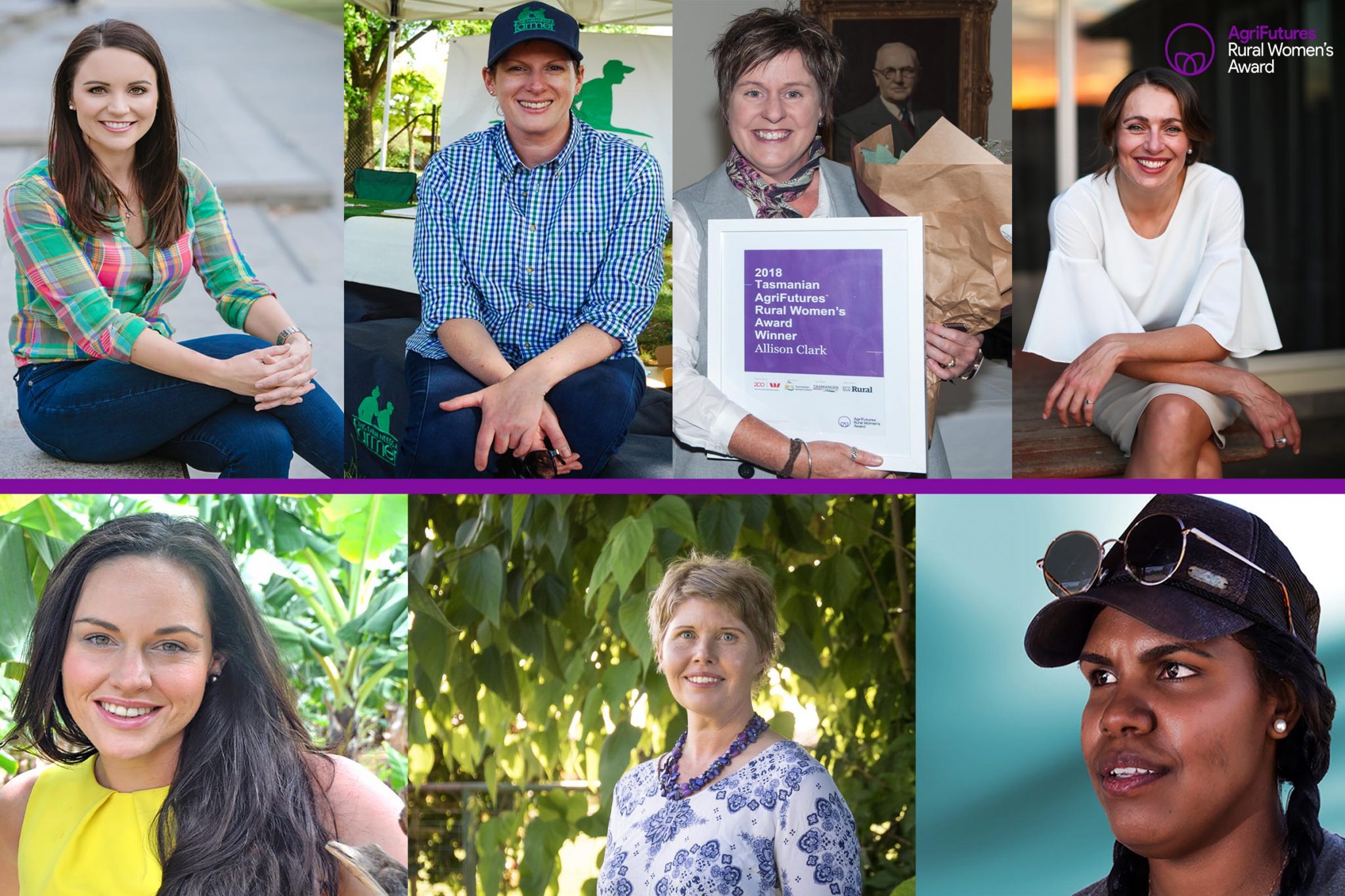The AgriFutures™ Rural Women’s Award acknowledges the essential role that women play in rural industries, and rural and regional businesses and communities.
Competition was fierce for the 2018 Award, with 21% more applicants than in 2017. The state-based selection panels completed a number of review and interview stages, before the eventual winner was declared at state and territory announcement events in capital cities across Australia over the last three months.
Women from all over Australia were encouraged to apply, with no formal qualifications required. Applicants simply had to focus on creating positive impact, make a difference and/or contribute to the future prosperity of rural and regional Australia.
The seven state and territory winners are emerging female leaders who have either already commenced a project that is positively impacting rural and regional Australia and the Award will enable them to boost, expand or elevate their work; or they have identified a problem or opportunity and the Award will help them to bring this to life. AgriFutures Australia, Managing Director John Harvey says he’s thrilled with the diverse and innovative projects, initiatives and ideas that were submitted this year.
“It’s an exciting year for the AgriFutures™ Rural Women’s Award with many of our seven state and territory winners already making such a positive influence in their communities with their initiatives, and many well on their way to bringing their project to fruition.
“We’re excited to provide these women with a platform to not only use and build on both their professional and personal skills and talents to drive change in rural and regional Australia, but also inspire and support other women whilst doing so,” said Mr Harvey.
The 2018 AgriFutures™ Rural Women’s Award state and territory winners are:
• Linda Blackwood, NT: Linda aims to develop a Station Site Access program which will allow contractors to lodge their accreditation’s online, and for station managers and employers to easily check contractors’ accreditation status. The program will increase efficiency and lead to a better balance between work and community life in rural areas.
• Allison Clark, TAS: Allison aims to understand how farming enterprises tap into research and available networks, the barriers integrating this information into decision making and ultimately create a tool kit for businesses in the early stages of product development.
• Melissa Connors, VIC: Melissa launched her project ‘This Farm Needs a Farmer’ in 2015, which aims to build stronger, more engaged communities by connecting tree changers with established and retired farmers who can pass on their valuable knowledge to newcomers.
• Darrylin Gordon, WA: Darrylin aims to develop a program that will deliver work orientation and mentoring on Lamboo Station in the Kimberley with hopes to instill self-respect and pride in the participants. The program will connect participants to country, teach invaluable life skills and help participants gain financial independence.
• Jillian Kilby, NSW/ACT: Jillian’s initiative is to improve the commercial success of start-ups by increasing the capability, capacity and confidence of regional business owners. Her project is a part of a bigger picture to develop more effective space and service for new and growing business owners within the Dubbo region.
• Alex Thomas, SA: Alex hopes to engage and empower rural women to help men keep themselves safe at work. She aims to launch the #PlantASeedForSafety social media campaign which will profile rural women and how they have improved work health and safety within their businesses and communities.
• Krista Watkins, QLD: Krista is the co-founder and managing director of Natural Evolution Foods, a world-first company specializing in green banana flour products. She aims to work with farmers in her local Tablelands region and empower them to create an alternative revenue stream for unsaleable sweet potato products.










